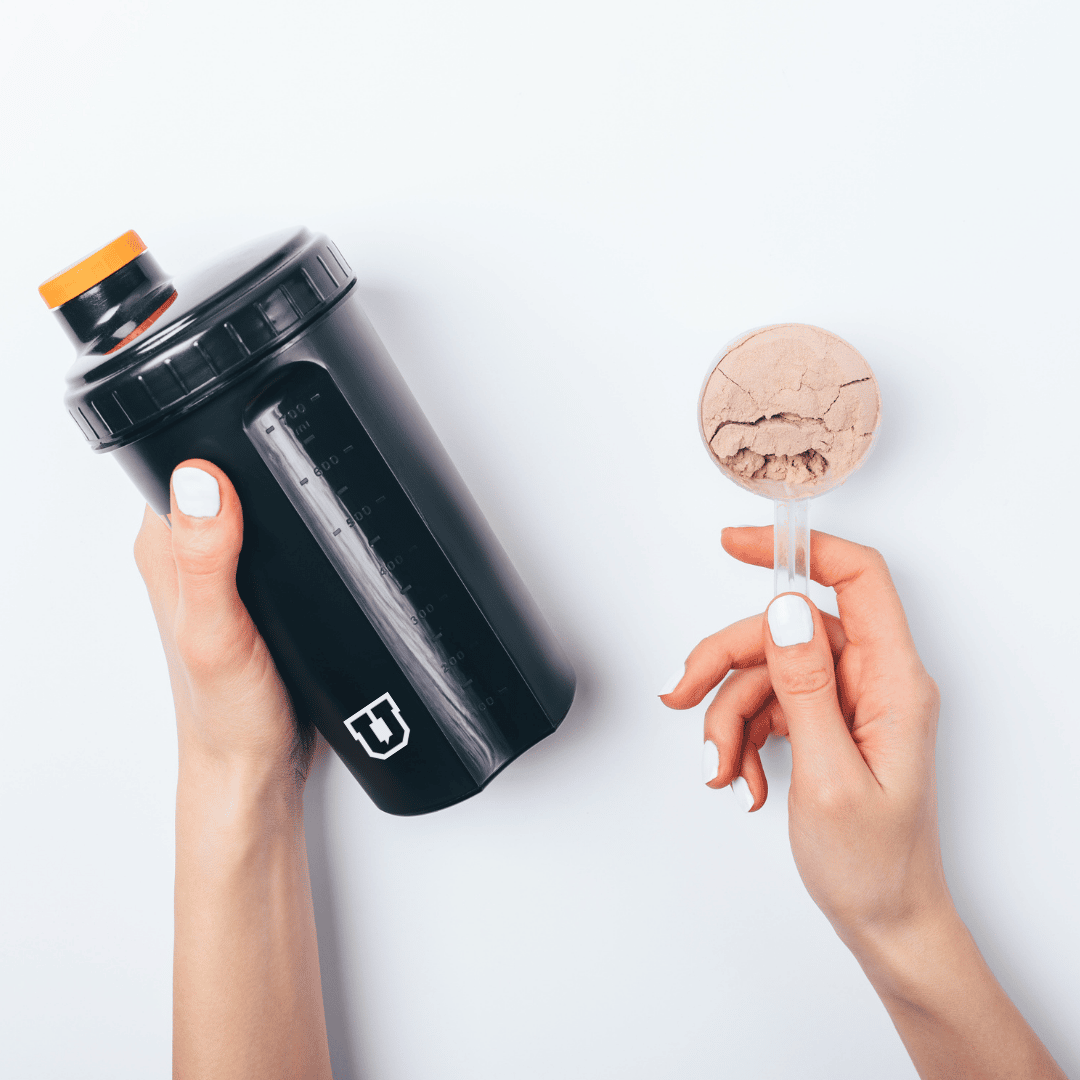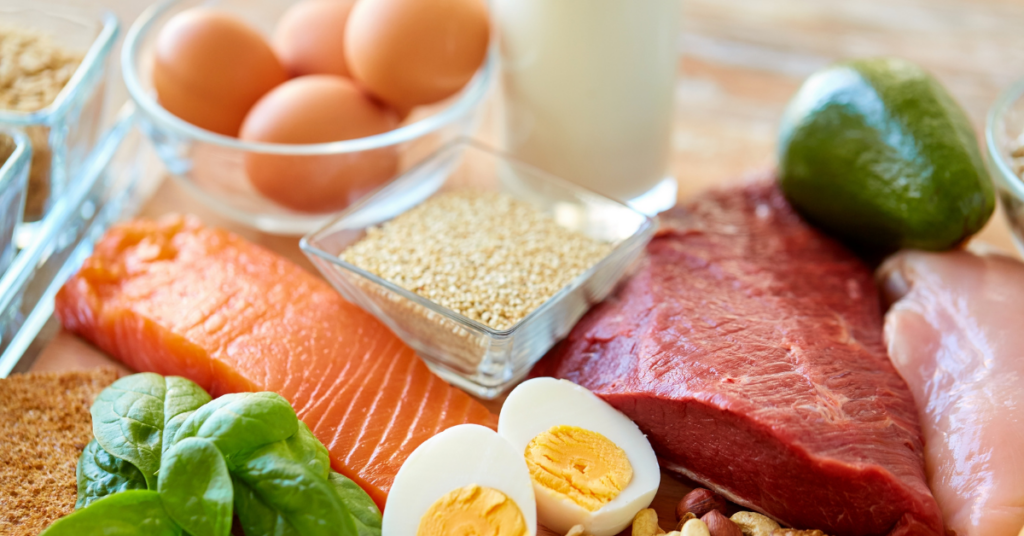When it comes to reaching your macro goals, we often find that getting in an adequate amount of protein can be challenging at first. Most foods aren’t that high in protein, so you’ll have to be very intentional with your meal planning.
Whole food protein sources should always be your first choice, but a good protein powder can be a fantastic option to keep on hand to fill in the gaps. You can mix it into a shake, add to a smoothie, oatmeal, yogurt – it’s a very easy way to bump up your protein macros quickly.
Now, if you’ve ever tried to buy protein powder, you’ve probably found the number of options overwhelming. There are so many types, brands, ingredients to look for… it’s a lot. Let’s break it all down and show you exactly what each type is and what to look for.
Whey Protein
Whey is an extremely popular choice. And for good reason — it’s easy to digest, it has fantastic benefits for your body. it’s usually quite affordable, and there are seemingly endless options of flavors and brands to choose from. Whey protein is one of the proteins made from milk, so those with lactose issues will probably need to avoid it, but this is a fantastic choice for everyone else.
Whey protein is designed to digest quickly, so it won’t be the most filling protein powder. But this can be a benefit as well! If you’re eating a meal with low protein, adding a shake on the side is the perfect way to increase your protein without feeling too full.
Casein Protein
The other milk-based protein is called casein protein. While whey protein is light and digests easily, casein protein will be a bit thicker – this is intentional. It can form a gel-like texture in your stomach, which causes it to digest slowly, and tends to be more filling than a whey protein shake.
Some find it a bit too thick, so the texture may take some getting used to, but if you’re looking for a slow-digesting, filling protein source, casein is perfect. This works well as a snack between meals or before bed to help keep you full through the night.
Plant-Based Protein
For those who don’t want to consume dairy products, you can also find many plant-based protein powders out there. The protein often comes from a wide range of plant-based products – soy, pea protein, hemp, lentils, or a combination of different plant sources.
The downside is that you’ll often find higher amounts of carb and fat macros in these products, so if you can consume dairy, something like whey protein will probably be easier to fit into your macros.
Alternate Protein Powders
Whey, casein, and plant-based proteins are the most common, but there are certainly others. You may see egg white protein powder or even beef protein powder. While not as common, these can also work well for those who want to avoid dairy and don’t want to use a plant-based protein.
Lastly, there’s collagen powder. Technically this does provide protein, but compared to other protein sources out there, it’s not quite as optimal for repairing and retaining muscle (one of the main functions of protein!). Limited research shows that it might have some minor benefits for joint health, skin health, and reducing inflammation, but you should still prioritize whole-food protein or one of the other options mentioned above.
How to Read the Label
Now that you’re ready to pick a protein powder, make sure to check the nutrition label. Depending on how they are processed, various brands and protein types will have different macros, so it’s worth looking at the nutrition label.
If you skim the ingredients, you’ll probably see words like concentrate, isolate, and hydrolysate. This simply refers to how processed the protein powder is. And the more processed it is, the fewer carbs and fats it will contain, and the faster it will digest.
Brands often market isolate and hydrolysate products (the most processed) as the better choice because they digest faster. But don’t worry about this — there isn’t any substantial scientific evidence to show that digestion speed makes any difference. It’s best to just choose a product with the best macros for your goals and come from a reputable brand.
Our Recommendations
Now time to share some of our favorites! This list isn’t comprehensive, but it’s a good place to start. Just make sure you’re buying from a reputable, established company (some smaller companies have been caught lying about protein content in the past!) and you’ll be in good shape.
These are non-affiliate links, and Stronger U does not receive any compensation for these recommendations.
Whey Protein
Optimum Nutrition Gold Standard Whey
Isopure Zero-Carb Whey Isolate
Casein Protein
Optimum Nutrition Casein Protein
Ascent Native Fuel Casein Protein
Plant-Based Protein
Garden of Life Plant-Based Protein
Ambrosia Planta Plant-Based Protein








